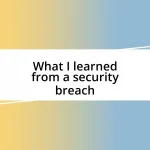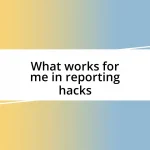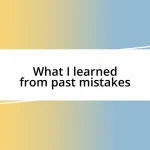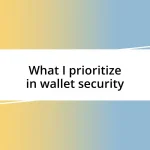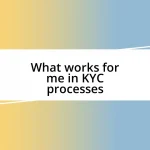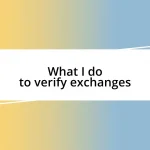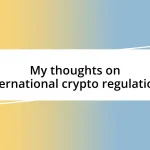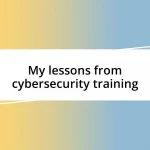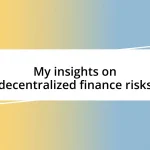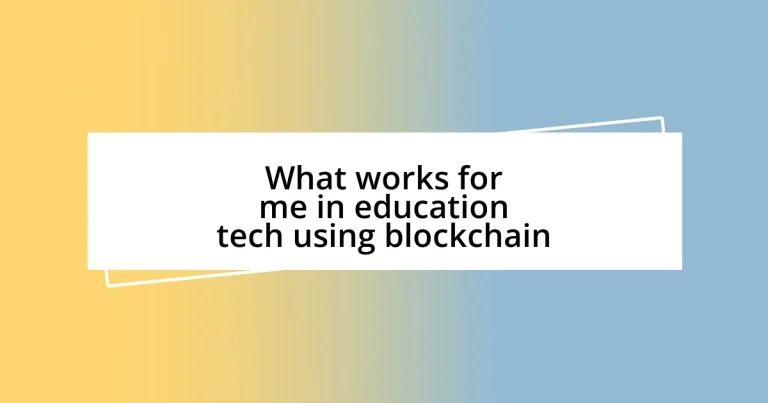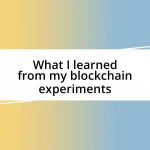Key takeaways:
- Blockchain enhances security and transparency in education, facilitating efficient credential verification and record-keeping.
- Key benefits include improved lifelong learning through digital portfolios and collaboration among institutions, leading to a more interconnected educational ecosystem.
- Challenges such as lack of understanding, interoperability issues, and regulatory compliance need to be addressed for successful blockchain implementation in education.
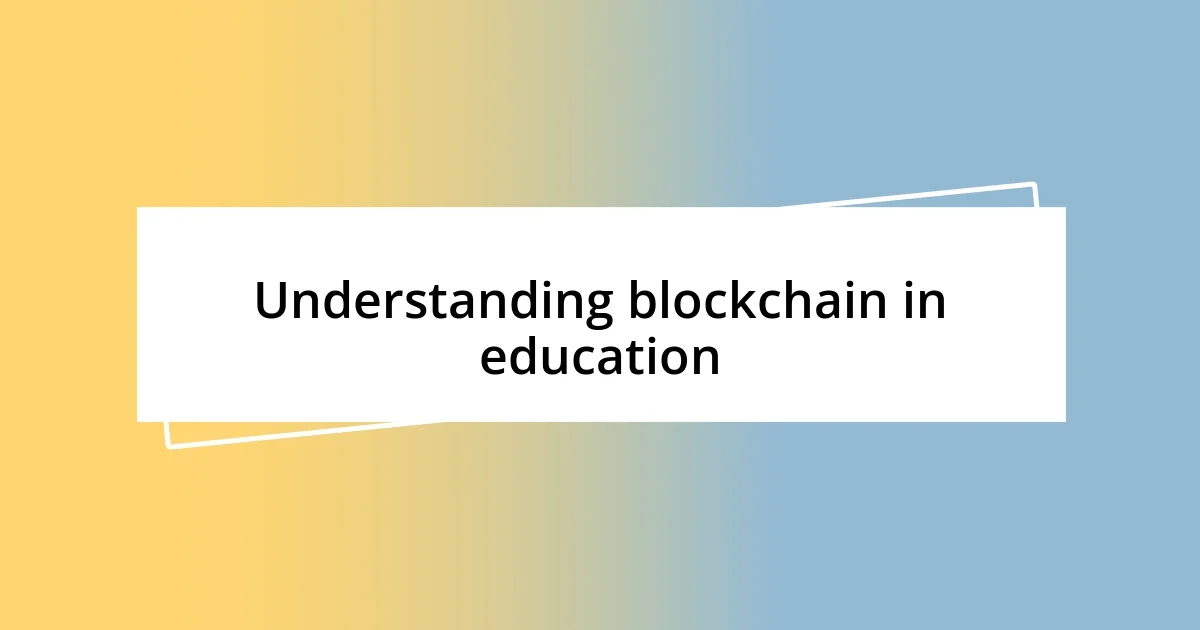
Understanding blockchain in education
Blockchain technology, often associated with cryptocurrencies, offers a revolutionary approach to education. I remember the first time I learned about it; I was both fascinated and overwhelmed, trying to grasp how such a complex system could impact something as traditional as education. Essentially, blockchain creates a secure, decentralized ledger of data, which can enhance transparency in processes like credentialing and record-keeping. Isn’t it exciting to think about how student achievements could be easily verified without the endless bureaucratic red tape?
One aspect that really stands out to me is how blockchain can empower learners by giving them control over their own educational records. Imagine being able to carry all your credentials in a digital wallet, accessible anytime and anywhere—how liberating would that feel? I think back to my own struggles with transcript requests and the delays involved. The thought of a streamlined, blockchain-based solution still makes my heart race with excitement.
Moreover, the idea of creating smart contracts to streamline educational agreements is a game-changer. These digital contracts can automatically enforce rules and agreements, which means less time spent on administration and more focus on actual learning. Have you ever felt bogged down by a mountain of paperwork? The future of education could be free from that burden, allowing both educators and students to thrive in a more fluid learning environment.
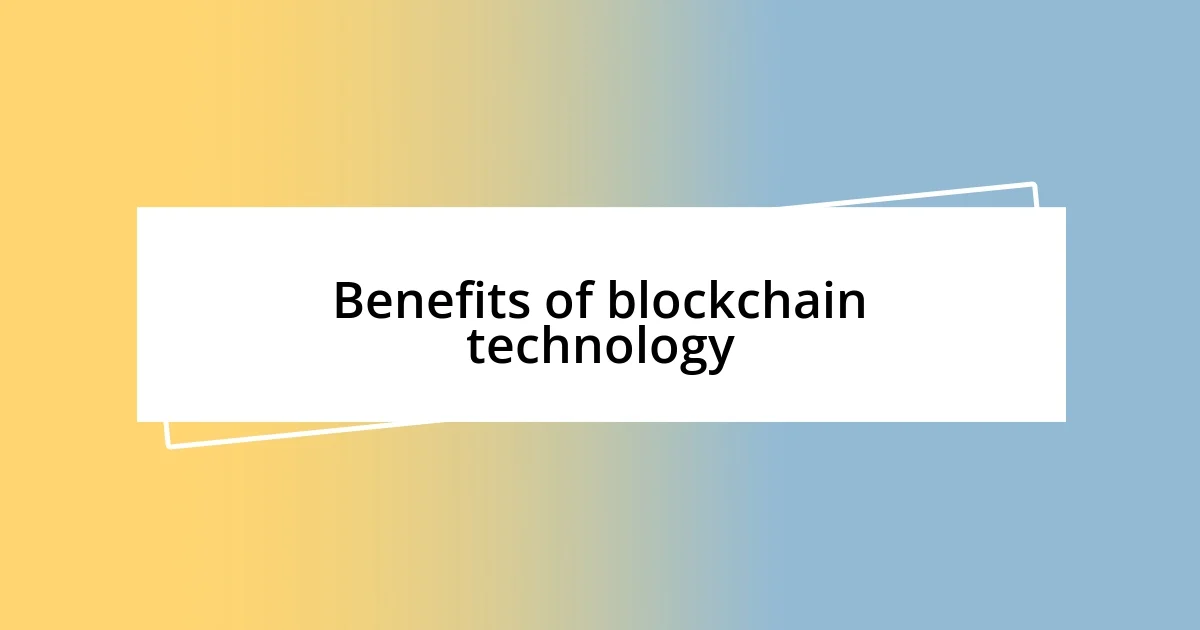
Benefits of blockchain technology
Blockchain technology offers several compelling benefits for the education sector that really resonate with me. One major advantage is the enhanced security of student records. I recall when I had to submit my transcripts multiple times to various institutions. With a blockchain, those records would be immutable and easily accessible, greatly reducing the chances of fraud and errors. As someone who values accuracy and safety, this prospect brings me a sense of relief.
Another significant benefit is the promotion of lifelong learning. Blockchain can allow individuals to accumulate and showcase a comprehensive portfolio of their skills and achievements over time. I often think about how difficult it can be to prove one’s skills beyond a diploma. This technology can create a dynamic, verifiable digital identity, enabling learners to adapt to the ever-changing workforce. Doesn’t the idea of having a comprehensive and easily shareable skill set just make you feel more empowered?
Finally, blockchain encourages collaboration among educational institutions. By sharing a unified platform, schools can easily share resources and data while maintaining control over their unique offerings. I remember the challenges in transferring credits between institutions, which often baffled me. A blockchain-driven system could solve these issues, fostering a more interconnected educational ecosystem that benefits everyone involved.
| Benefit | Description |
|---|---|
| Enhanced Security | Immutable records reduce fraud and errors in student transcripts. |
| Lifelong Learning | Digital portfolios allow individuals to showcase skills and achievements. |
| Institutional Collaboration | Shared platforms enable resource sharing while maintaining unique offerings. |
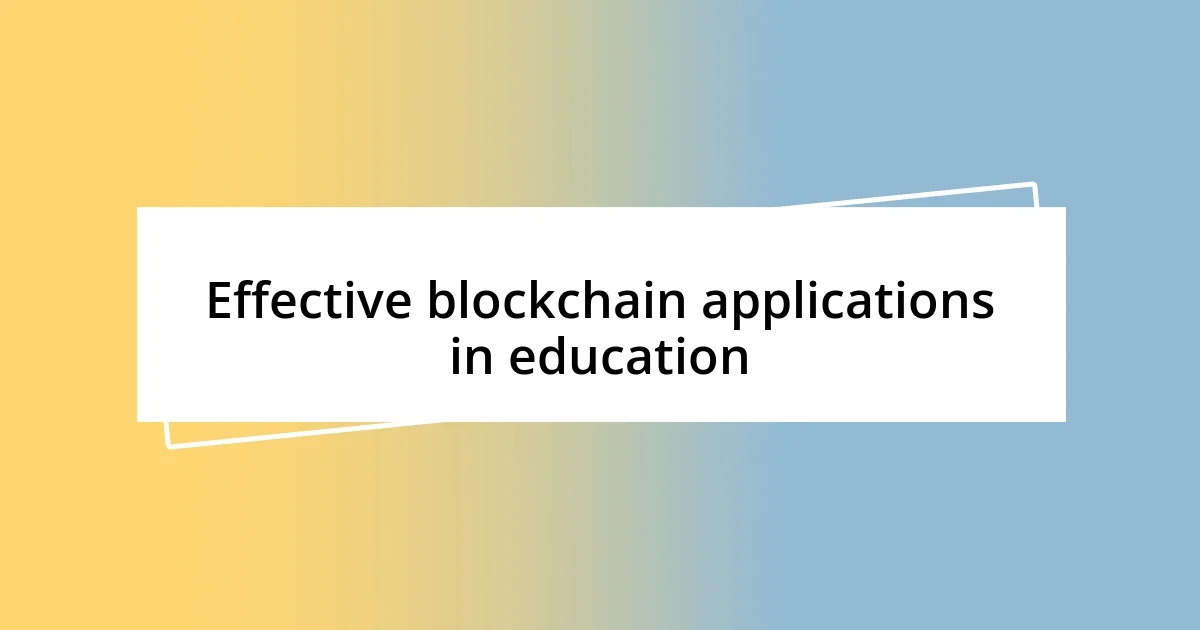
Effective blockchain applications in education
The applications of blockchain in education truly excite me, especially when I think about verifying student credentials. In the past, applying for jobs involved a frustrating back-and-forth with schools to confirm my qualifications. With blockchain, this process could be streamlined significantly, allowing potential employers to verify credentials instantly and securely. I envision a time when students can focus more on showcasing their abilities and less on navigating bureaucratic hurdles.
Examples of effective blockchain applications in education include:
- Digital Diplomas: Institutions can issue diplomas that are easily verified by employers, eliminating the need for paper copies.
- Student Portfolios: Learners can maintain a blockchain-based portfolio that evolves with skills acquired over time.
- Credit Transfer: A secure ledger could simplify the transfer of academic credits between institutions, avoiding the complications I once faced.
It’s incredible to imagine how these innovations could transform our approach to education, making it more efficient and transparent.
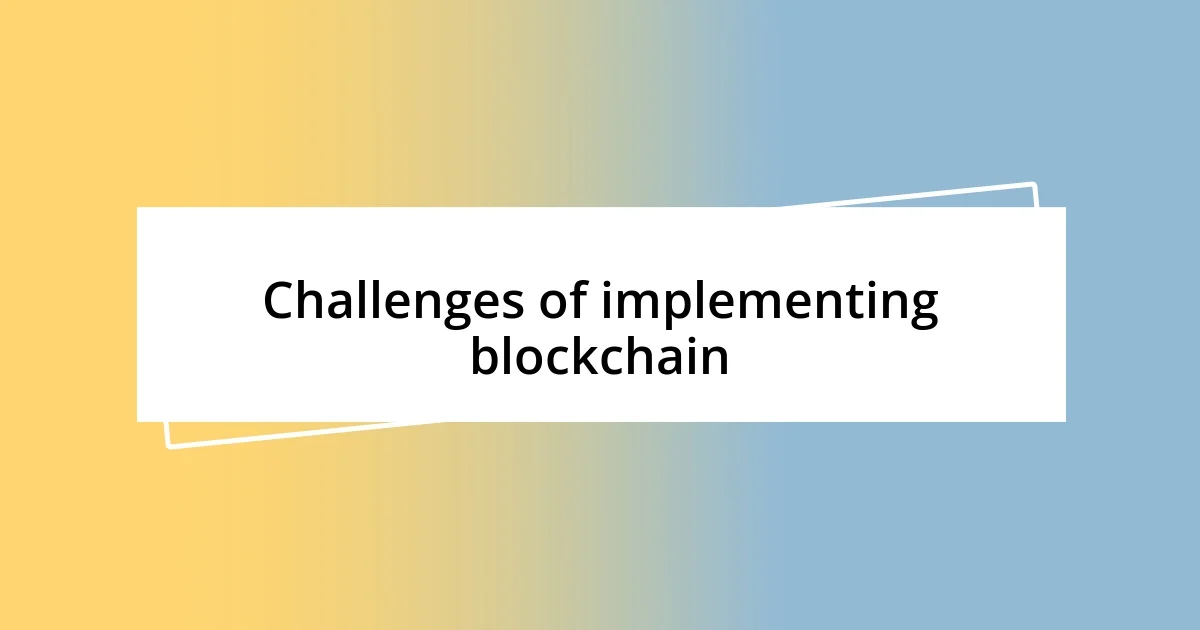
Challenges of implementing blockchain
Implementing blockchain in education isn’t without its challenges, and I’ve drawn from my experiences to highlight some key hurdles. One major obstacle is the lack of understanding and familiarity with the technology among educators and administrators. I remember attending a workshop where the concept of blockchain was met with puzzled looks. It made me realize that without proper training, even the most innovative solutions may struggle to gain acceptance.
Another significant challenge revolves around interoperability. Different institutions might adopt various blockchain systems, leading to potential fragmentation. I often think about when schools use different software to record grades. Isn’t it frustrating when you have to bridge those gaps? Similarly, if blockchain systems don’t communicate effectively, the promised benefits of streamlined processes won’t come to fruition.
Finally, regulatory and compliance issues represent a considerable barrier. Data privacy laws vary widely, and integrating blockchain doesn’t always align seamlessly with existing regulations. I remember grappling with policy restrictions when trying to push for new technologies in my own projects. How can we harness blockchain’s potential without navigating these complex legal waters? It’s a tough balancing act that requires careful consideration and dialogue among stakeholders.
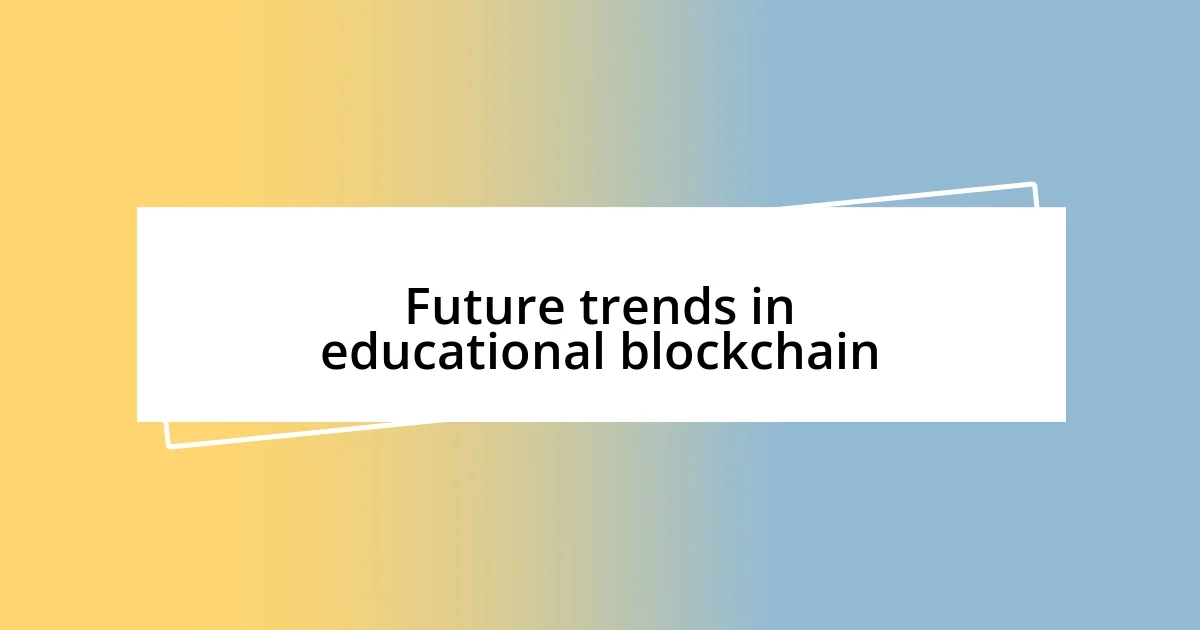
Future trends in educational blockchain
As I look ahead, I can’t help but feel that educational institutions will increasingly embrace decentralized learning environments powered by blockchain technology. Imagine a scenario where students take ownership of their own learning pathways, modifying their credentials as they acquire new skills, almost like crafting a personalized digital resume. This trend speaks to a growing demand for learner autonomy and adaptability in an ever-evolving job market.
Moreover, I believe we’ll see significant advancements in the integration of blockchain with other emerging technologies. Picture this: artificial intelligence working in tandem with a transparent ledger to offer tailored educational experiences. I often wonder how much more engaged students would be if their learning experiences were completely customized to their strengths and interests. Such synergies could lead to groundbreaking accreditation models that recognize informal and non-traditional learning avenues.
Finally, the notion of peer-to-peer learning facilitated by blockchain could gain more traction. I’ve often cherished those moments when I learned from my peers, and this trend could formalize that process. Imagine students earning credentials not just from institutions, but also from fellow learners, thereby shifting the focus to collaborative education. Isn’t it exhilarating to think about how blockchain can legitimize and empower this shared knowledge, creating a more interconnected and supportive educational community?
